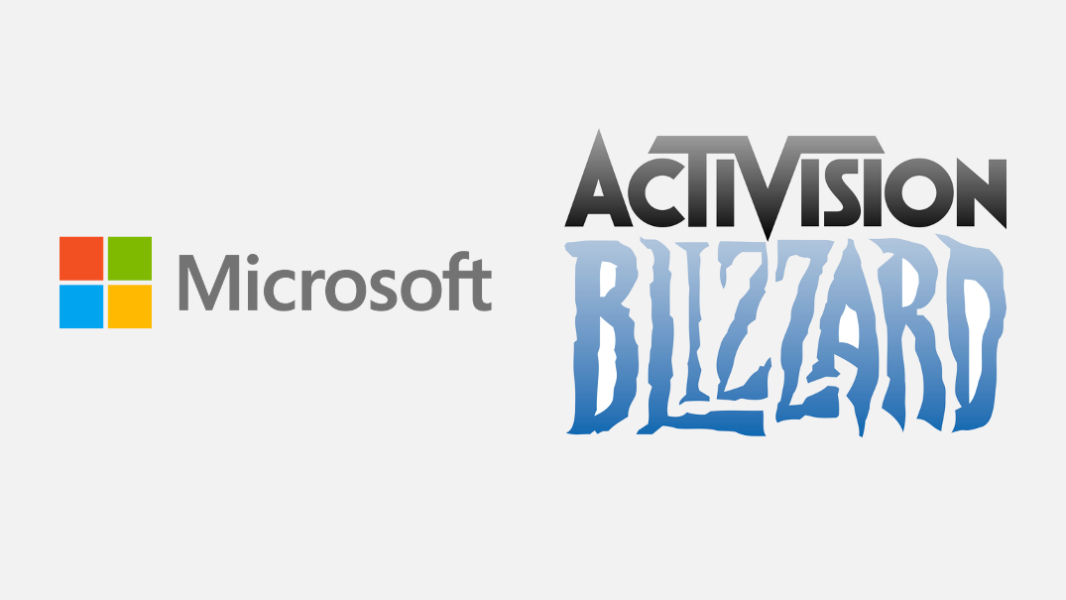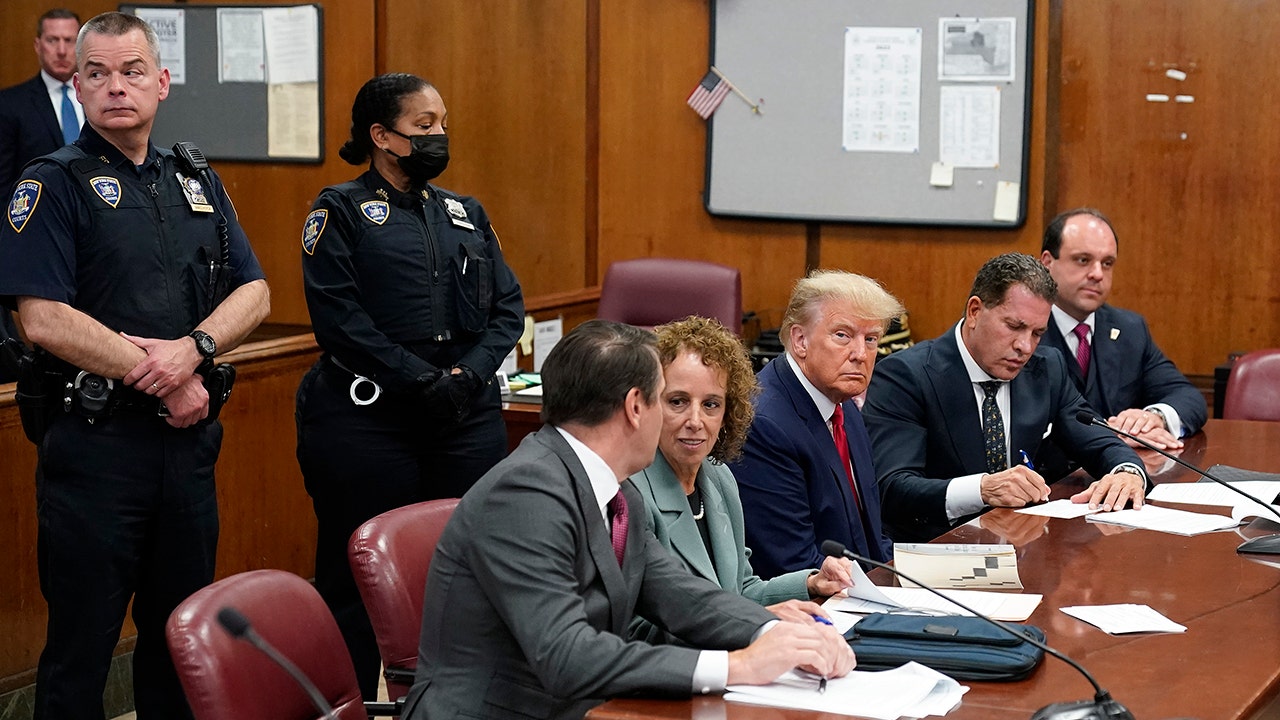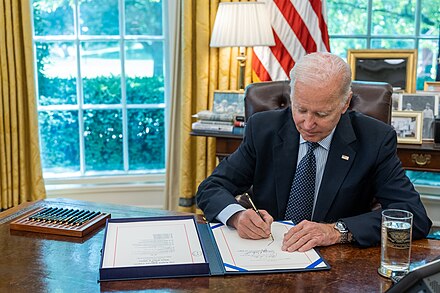FTC Challenges Microsoft's Activision Blizzard Purchase: A Legal Battle

Table of Contents
The FTC's Concerns Regarding Competition
The FTC's primary concern centers around the potential for Microsoft's acquisition to stifle competition within the gaming market. This concern manifests in several key areas.
Stifling Competition in the Gaming Market
The FTC argues that Microsoft's control over Activision Blizzard's vast portfolio of popular games, including the immensely successful Call of Duty franchise, would give them an unfair competitive advantage. This could potentially exclude competitors and ultimately harm consumers.
- Microsoft's potential control over Call of Duty: This iconic franchise holds significant market power, and its exclusivity to Xbox consoles or Game Pass could severely disadvantage PlayStation and other gaming platforms. The FTC is particularly concerned about the impact on Sony, a major competitor.
- Concerns about anti-competitive practices in subscription services: The integration of Activision Blizzard's titles into Xbox Game Pass could further solidify Microsoft's dominance in the subscription gaming market, potentially forcing rivals out of business or limiting their growth.
- Impact on smaller game developers: The merger could create significant barriers to entry for smaller game developers, limiting innovation and reducing the diversity of games available to consumers. This lack of competition could lead to a less dynamic and innovative gaming market overall.
The Impact on Game Prices and Innovation
The FTC's lawsuit also alleges that the merger could lead to higher prices for gamers and reduced innovation.
- Potential price increases: The combined market power of Microsoft and Activision Blizzard could result in price increases for popular Activision Blizzard games, impacting consumers' wallets.
- Effect on the development of new gaming technologies: The merger might stifle innovation in gaming technology as Microsoft may prioritize its own platforms and technologies, potentially hindering the development of new gaming experiences.
- Impact on variety and quality of games: A less competitive market might result in a reduced variety and overall quality of games available to consumers, as innovation and competition are key drivers of improved gaming experiences.
Microsoft's Defense Strategy
Microsoft maintains that the acquisition will benefit gamers by expanding access to games through Xbox Game Pass and bolstering competition in the cloud gaming sector.
Microsoft's Arguments Against the FTC's Claims
Microsoft’s defense relies on several key arguments aimed at refuting the FTC's claims.
- Agreements to keep Call of Duty available on rival platforms: Microsoft has offered long-term agreements to keep Call of Duty available on PlayStation and other platforms, attempting to alleviate the FTC's concerns about exclusivity.
- Investments in cloud gaming infrastructure: Microsoft highlights its significant investments in cloud gaming infrastructure, arguing that the acquisition will accelerate innovation and expand access to games for a wider audience.
- Benefits of integrating Activision Blizzard's studios and talent: Microsoft emphasizes the synergistic benefits of integrating Activision Blizzard's talented studios and game developers, leading to the creation of even better games in the future.
Legal Precedents and Antitrust Law
Microsoft's legal team is leveraging established legal precedents and antitrust laws to support its defense.
- Review of similar merger cases: Microsoft will likely cite previous merger cases in the tech industry to demonstrate that the acquisition is not anti-competitive.
- Application of antitrust laws in the tech industry: Microsoft’s legal strategy will involve a detailed analysis of how antitrust laws apply to the unique dynamics of the tech and gaming industries.
- Commitment to comply with regulatory requirements: Microsoft will emphasize its commitment to complying with all relevant regulatory requirements and working collaboratively with regulators to address their concerns.
The Potential Outcomes and Implications
The FTC's challenge could lead to several outcomes, each with significant implications for the gaming industry.
Possible Scenarios Following the Legal Battle
Several potential outcomes are plausible, each with far-reaching consequences.
- Scenario: The FTC wins, and the merger is blocked: This outcome would be a significant blow to Microsoft and Activision Blizzard, potentially impacting stock prices and future M&A strategies within the gaming sector.
- Scenario: A settlement is reached with concessions from Microsoft: A settlement might involve Microsoft agreeing to certain concessions, such as extended availability of Call of Duty on competing platforms or divesting certain assets.
- Scenario: Microsoft wins the case, allowing the merger to proceed: This scenario would likely solidify Microsoft's position in the gaming market, potentially altering the competitive landscape for years to come.
The Broader Implications for the Tech Industry
This legal battle sets a crucial precedent for future mergers and acquisitions in the tech sector.
- Impact on future mergers and acquisitions: The outcome could significantly influence how future mergers and acquisitions are regulated within the gaming and broader tech industries.
- Wider implications for antitrust regulation: The case highlights the complexities of applying antitrust laws in rapidly evolving tech markets, potentially leading to updated regulatory frameworks.
- Influence on the future of cloud gaming and subscription services: The outcome will likely shape the trajectory of cloud gaming and subscription service models in the gaming industry.
Conclusion
The FTC challenges Microsoft Activision Blizzard purchase is a defining moment for the gaming industry. The outcome will profoundly influence competition, innovation, and pricing. The intricacies of this legal battle underscore the challenges regulators face in navigating the fast-paced evolution of technology. Stay informed about the developments surrounding the FTC challenges Microsoft Activision Blizzard to understand the future of gaming. Staying updated on this ongoing legal battle is crucial for anyone interested in the future of the gaming landscape.

Featured Posts
-
 Pandemic Fraud Lab Owner Pleads Guilty To Falsifying Covid Test Results
Apr 24, 2025
Pandemic Fraud Lab Owner Pleads Guilty To Falsifying Covid Test Results
Apr 24, 2025 -
 Luxury Car Sales In China Analyzing The Struggles Of Bmw Porsche And More
Apr 24, 2025
Luxury Car Sales In China Analyzing The Struggles Of Bmw Porsche And More
Apr 24, 2025 -
 24 Year Old Ella Bleu Travoltas Fashion Magazine Cover A New Era
Apr 24, 2025
24 Year Old Ella Bleu Travoltas Fashion Magazine Cover A New Era
Apr 24, 2025 -
 The Path To Fiscal Responsibility A Critique Of Liberal Economic Management
Apr 24, 2025
The Path To Fiscal Responsibility A Critique Of Liberal Economic Management
Apr 24, 2025 -
 Are Trumps Budget Cuts Exacerbating Tornado Season Risks A Look At The Evidence
Apr 24, 2025
Are Trumps Budget Cuts Exacerbating Tornado Season Risks A Look At The Evidence
Apr 24, 2025
